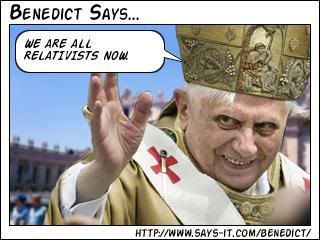More Unconvincing Arguments for God: Little Johnnyism
 Little Johnnyism is a variant of the argument to authority with which I am sure we are all familiar. When we were kids, Little Johnny was that boy down the street that our parents were convinced we all wanted to emulate. “Little Johnny does the dishes,” “Little Johnny keeps his room clean,” “Little Johnny mows his parents’ lawn,” and so on. The idea is that since we have some attribute in common with Little Johnny—that of being little--we are more likely to be impressed by the moral examples he sets than by those of an older person.
Little Johnnyism is a variant of the argument to authority with which I am sure we are all familiar. When we were kids, Little Johnny was that boy down the street that our parents were convinced we all wanted to emulate. “Little Johnny does the dishes,” “Little Johnny keeps his room clean,” “Little Johnny mows his parents’ lawn,” and so on. The idea is that since we have some attribute in common with Little Johnny—that of being little--we are more likely to be impressed by the moral examples he sets than by those of an older person.
Apologists use Little Johnnyism when they rattle off names of celebrated ex-atheists who have found Jesus and/or God--e.g. Lee Strobel or Anthony Flew—reasoning that, since all atheists obviously think alike, they are equally likely to be impressed by such conversion stories. Some apologists, like Kirk Cameron, will even cite (or, as I suspect, manufacture) their own atheist pre-history and subsequent conversion tale—call it “Little Kirkism”—and then claim to know what all atheists think (and presume to tell atheists what atheists think).
My correspondent Trey himself uses Little Johnnyism when he rattles off a list of scientists—I mean, atheists are bound to be impressed by scientists, right?--who have made affirmative pronouncements on the existence of God/the supernatural. Robert Jastrow, an astrophysicist, says this in talking about the Big Bang theory and its implications, “Now we see how the astronomical evidence leads to a biblical view of the origin of the world. The details differ, but the essential elements in the astronomical and biblical accounts of Genesis are the same: the chain of events leading to man commenced suddenly and sharply at a definite moment in time, in a flash of light and energy.” In another interview he says, “Astronomers no find they have painted themselves into a corner because they have proven, by their own methods, that the world began abruptly in an act of creation to which you can trace the seeds of every star, every planet, every living thing in this cosmos and on the earth. And they have found that all this happened as a product of forces they cannot hope to discover…That there are what I or anyone would call supernatural forces at work is now, I think, a scientifically proven fact.” Arthur Eddington, a contemporary of Albert Einstein, said, “The beginning seems to present insuperable difficulties unless we agree to look on it as frankly supernatural.”
Sorry, Trey, but this proves nothing—other than the fact that even scientists are as prone to the argument from ignorance fallacy as the rest of us. And how does Jastrow know that the Big Bang was an act of creation? He doesn’t provide any evidence to support his claim—he simply asserts it. Creation implies a Creator. Add begging the question to that list of logical fallacies to which scientists might also be prone—particularly when they are speaking on matters that lie outside the purview of science, such as the supernatural. (Incidentally, it turns out that Jastrow also speculated that “the Big Bang may have been one of a series of cosmic explosions that alternate with cosmic collapses.” Ah, the pitfalls of quote-mining!) Trey goes on:What they are talking about observing is that the universe and cosmos have a definite beginning. The Law of Causality tells us that everything that had a beginning has a cause. The cosmos have a beginning; therefore, it must have a cause. That cause must be eternal, timeless, infinitely powerful, etc. to have done this, which are characteristics remarkably like theistic God.
Firstly, while the Big Bang theory may suggest that the universe had a beginning, the cosmos is a different matter—google “multiverse theory.” Secondly, how does Trey know that whatever caused the cosmos did not itself have a beginning? How does he know that whatever caused whatever caused the cosmos did not itself have a beginning? And so on. Trey offers more scientists offering arguments from ignorance/incredulity: Astrophysicist Hugh Ross took into account all the constants that are necessary to sustain life as it does not on earth, 122 in all, and what we know of the number of planets in existence, 10^22, and found that probability to be 1 IN 10^138. There are an estimated 10^70 atoms in the universe, so that number is absurdly high. Given that the universe is not eternal and did have a beginning, there is zero chance that natural nomena could explain existence. Nobel Laureate Arno Penzias said, “Astronomy leads us to a unique event, a universe which was created out of nothing and delicately balanced to provide exactly the conditions required to support life. In the absence of an absurdly-improbable accident, the observations of modern science seem to suggest an underlying, one might say, supernatural plan.” To which you say and many atheists would say, “Nu-uh, that event happened. Shutup, science!” and I and my theists buddies would say, “Good work science. Seems reasonable to me.” However, the fact that that event cannot be recreated means that we will never know exhaustively what happened. This means that, regardless of how much support we get, there will be a need for some amount of faith in any conclusions.
Astrophysicist Hugh Ross--note the Little Johnnyist marker-- is an old earth creationist, and a detailed critique of his ideas on fine-tuning can be found here (see also this post by P Z Myers), but he’s basically making a “God of the Gaps” argument (“I can’t explain it, therefore goddidit”), as is the Nobel Laureate Arno Penzias. Nothing to see here, people. Of course in science we will never know exhaustively what happened with regard to past events such as the origin of the Earth, the solar system, or the Universe—the best we can do is arrive at sound models based upon the evidence we have. Isn’t that better than simply throwing our hands in the air and proclaiming “we don’t know . . . therefore goddidit”?

















|